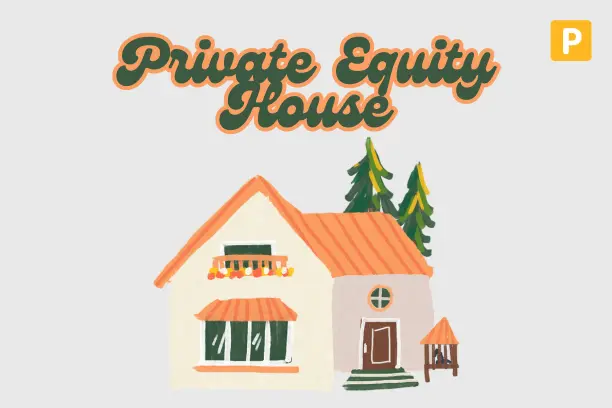What is a Private Equity House in 2024? Understanding the Powerhouses of Corporate Investment

Private equity houses are the strategic maestros of the investment world, wielding significant influence in corporate landscapes across global markets. These sophisticated financial institutions don’t just invest money—they transform businesses, drive strategic growth, and generate impressive returns for their investors. In 2024, private equity houses continue to play a pivotal role in reshaping industries, with global investments reaching unprecedented levels!
When I first started diving into the world of corporate finance, private equity houses seemed like mysterious titans, operating behind the scenes and wielding incredible economic power. And guess what? They absolutely are! These aren’t your typical investment firms. They’re more like corporate surgeons, carefully selecting, analyzing, and fundamentally transforming businesses.
What Exactly is a Private Equity House?
A private equity house is a specialized investment firm that pools capital from institutional and high-net-worth investors to acquire, invest in, and restructure companies not listed on public stock exchanges. Think of them as the ultimate business transformation experts.
Unlike mutual funds or publicly traded investment companies, private equity houses take a hands-on approach. They don’t just passively invest—they actively manage and strategically improve the businesses in their portfolio. Their teams typically include former industry executives, financial experts, and strategic consultants who know exactly how to unlock a company’s potential.
For the most up-to-date global insights into private equity trends and performance, professionals often refer to Preqin, a leading source of alternative assets data and intelligence.
Key characteristics of a private equity house include:
- Direct ownership stake in private companies
- Active management and strategic intervention
- Long-term investment horizons (typically 3-7 years)
- Focus on generating substantial returns through operational improvements
- Sophisticated due diligence and rigorous selection processes
How Private Equity Houses Operate
The operational mechanics of a private equity house are fascinating and complex. It all starts with fundraising—they gather massive pools of capital from pension funds, endowments, wealthy individuals, and other institutional investors.
Once they’ve secured funding, their investment teams go into hyperdrive. They’re not just looking for any business; they’re hunting for specific opportunities with clear potential for transformation. Their due diligence is nothing short of forensic—they’ll analyze everything from a company’s financial statements to its market positioning, organizational culture, and potential growth trajectories.
Typical operational steps include:
- Extensive market research and company screening
- Detailed financial and operational analysis
- Valuation and potential return modeling
- Negotiation of investment terms
- Post-acquisition strategic planning
- Hands-on management and performance optimization
Also Read: What is Lease Purchase?
Types of Private Equity Investments
Private equity houses aren’t monolithic—they employ various investment strategies tailored to different market conditions and opportunities:
- Leveraged Buyouts (LBOs): Acquiring companies using a significant amount of borrowed money, improving their operations, and then selling them at a profit.
- Growth Equity Investments: Providing capital to relatively mature companies looking to expand or restructure.
- Venture Capital: Investing in early-stage, high-potential startups with innovative technologies or business models.
- Distressed Asset Acquisitions: Purchasing underperforming or financially troubled companies with the intention of turning them around.
Each strategy requires a unique approach and specialized expertise, highlighting the sophistication of these investment powerhouses.
The Economic Impact of Private Equity Houses
Despite occasional criticism, private equity houses play a significant role in economic dynamism. They often inject capital, expertise, and strategic thinking into businesses that might otherwise stagnate.
Their impact extends beyond individual companies:
- Job creation through strategic business expansion
- Technological innovation and modernization
- Industry consolidation and efficiency improvements
- Global economic restructuring
- Providing alternative investment opportunities for institutional investors
Challenges and Criticisms of Private Equity Houses
Of course, it’s not all smooth sailing. Private equity houses face substantial scrutiny and legitimate concerns:
- Potential workforce reductions during restructuring
- High levels of debt in acquisition strategies
- Accusations of prioritizing short-term gains over long-term sustainability
- Limited transparency in decision-making processes
- Regulatory challenges and increasing governmental oversight
Conclusion
Private equity houses represent a sophisticated and dynamic sector of financial investment, continuously adapting to create value and drive corporate transformation. As global markets become increasingly complex, these institutions will undoubtedly continue to play a crucial role in shaping economic landscapes.
For aspiring investors or business professionals, understanding private equity houses offers invaluable insights into modern corporate strategy and financial innovation. Whether you view them as corporate heroes or potential villains, their impact on our economic ecosystem is undeniable.
Curious about private equity? Keep learning, stay informed, and never stop asking questions about how businesses truly grow and evolve!
